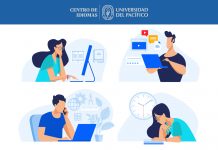“Once you learn to read, you will be forever free.” Frederick Douglass
This is a saying that always stimulates my passion for reading. My resolve for breaking free from anything that would tie me to whatever could prevent me from achieving my goals has been very strong since I became a revolutionary teenager. A long time ago!
I have always thought that if you want to change your future, you have to begin by changing your present. Many times we do not have all the means we may need, so the only answer is education and that begins with your ability to learn, with the help of your instructors, or the best teachers: books, notwithstanding whether they are the paper or digital kind.
Now comes your reply: “Yeah, I know. I try and try, but I cannot understand what I´m reading and, consequently, I cannot tell you what the text is about, much less could I answer reading comprehension questions!”
My first question would be if you want to improve your reading skills for pleasure or in order to take a specific exam.
For pleasure: Do not stress yourself! If you want to combine your enjoyment for reading with your determination to improve your English, try for example reading books made for students. They are usually tailored to a certain level of English. You will still be practising reading, learning new ways of expressing ideas, new vocabulary and at the same time enhancing your background knowledge about different topics. Little by little, you will improve your linguistic competence and get ready to attempt reading other types of information. You have to be patient; nothing happens overnight.
You can take a look at the following article to become aware of some other aspects of the reading process.
https://blogidiomas.up.edu.pe/2019/04/reading-in-english-and-spanish-two-sides-of-the-same-coin/

For exams: Here the story changes. What´s your level of English competence? What´s your level of background knowledge? Do you know at least a little about different topics in your native language? What about your ability to maintain your attention for a long period? And are you already familiar with some reading strategies in your native language? All these aspects are very important in the process of reading. Needless to say, you must consider the level of the exam you want to take. Your linguistic competence needs to be very close to the level of the test you’re taking; otherwise, your preparation time may go to waste. During any exam preparation courses, the focus is on learning the exam strategies and polishing your language competence; but such courses are not designed to teach you general English. For example, if your level of English is framed for an FCE exam and you want to approve a CPE exam, you probably won´t take much advantage of that course. It is like asking a young child who rides his bike with training wheels to perform stunts. You need to achieve a certain level in order to begin a preparation course. This definitely is connected to reading. If you are trying to understand reading material for a higher level of language, it is not surprising that you will have trouble with the reading comprehension questions.
Regarding the previous knowledge that you should have before reading: It is not a decisive requirement, but it helps to know at least something about the concept displayed. Imagine you have to read about neuroscience and you have a great deal of experience in arts, but know very little about the matter on hand. You may not understand many concepts. Even if the text were in your native language, you may have to struggle with the topic. My suggestion is to google the subject or watch a video about it in order to familiarize yourself with some basic elements of the concept described or used in the reading passage. I can guarantee you that your reading will flow much better.
About reading strategies, there are many and very useful ones. If you haven´t learned any in high school or university, this is the moment to do so. One that I always begin with is to have a kind of “conversation” with the text. For instance, I read the first line and ask myself. “Ok, what could the text be about?” I answer myself with some predictions. Even if I am not certain about them, by simply wondering I will be preparing my brain to receive the information about to be read. My brain will be “eager” to confirm the predictions; my mind will be alert to what is coming. Believe it or not, that strategy helps to understand what you are reading. This interaction with the text is crucial if we want to succeed. Take a look at the articles suggested above to find more strategies.

Last but not least, your concentration (1). Nowadays, we are bombarded by multiple auditory and visual stimuli at school, university or work. We are accustomed to doing several activities at the same time, so when it comes to focusing on just one task, reading for instance, we find it very difficult to keep our attention on for long periods and our concentration falls down. If we talked about digital natives, the story changes a little bit since they are usually accustomed to obtaining an immediate response to their each and every action. But that´s a topic for another article. A useful tip that has worked for many of my students is to start reading short passages first; the ones that have from nine to twelve lines. Once they master this type of texts, they can go for longer texts and so on.
As every skill, it is necessary to practice a lot. Just think of learning how to drive and the number of hours of practice you do need to master that skill. Learning a language requires the same devotion.
Now, your turn:
What other shortcuts have you already tried?
Have you experienced any of the cases mentioned above?
Reference
(1) Mustafa Yildiz, Ezgi Çetinkaya (2017). The Relationship between Good Readers’ Attention, Reading Fluency and Reading Comprehension. Universal Journal of Educational Research 5(3): 366-371, 2017.
Retrieved from https://files.eric.ed.gov/fulltext/EJ1134476.pdf










